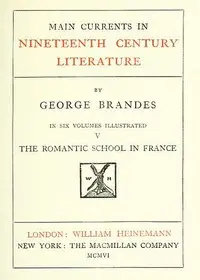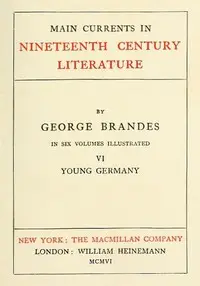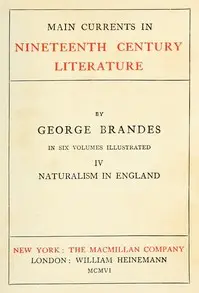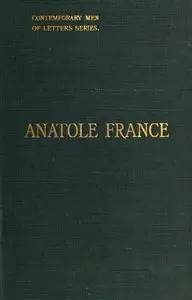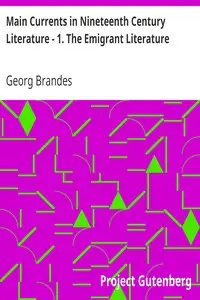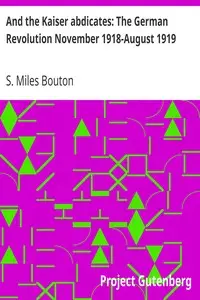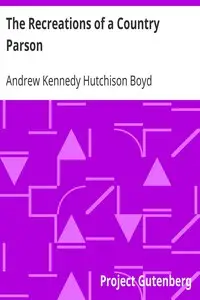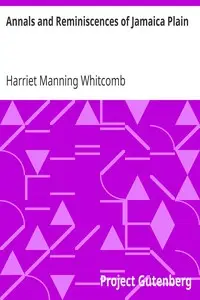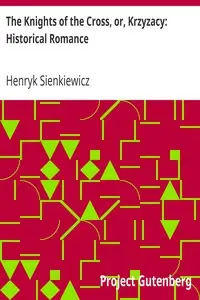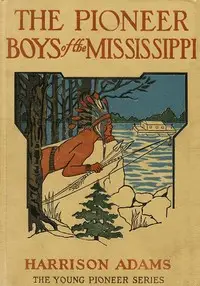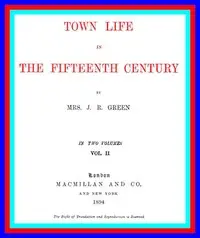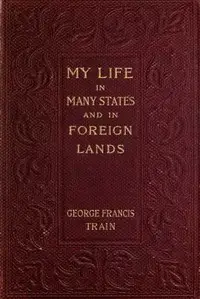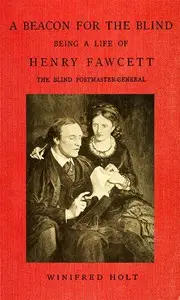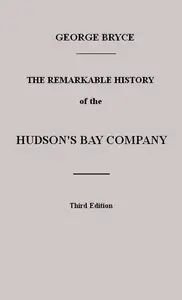"Main Currents in Nineteenth Century Literature - 2. The Romantic School in Germany" by George Brandes is a scholarly work written in the early 20th century. The book explores the German Romantic School, delving into its key figures and literary movements, and provides a critical analysis of how these works relate to broader social and psychological themes. Brandes aims to connect literature with the historical and emotional context from which it emerged, guiding readers through the complexities of Romanticism. The opening of the text presents an introduction to the German Romantic School, highlighting the challenges faced by a foreign critic attempting to outline its vastness. Brandes reflects on his position as a Dane, recognizing the depth of knowledge inherent to native scholars while seeking to offer a unique perspective. He sets forth his intention to illuminate the connections between literature and life, paying particular attention to the emotional undercurrents that define this literary movement. Brandes emphasizes that German Romanticism, while a reaction to preceding literary traditions, simultaneously encompasses rich, diverse, and innovative expressions of individuality and psychological depth, a theme that will be further examined in subsequent sections of the work. (This is an automatically generated summary.)
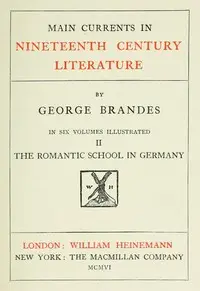
Main Currents in Nineteenth Century Literature - 2. The Romantic School in Germany
By Georg Brandes
"Main Currents in Nineteenth Century Literature - 2. The Romantic School in Germany" by George Brandes is a scholarly work written in the early 20th c...
Genres
Released
2014-12-26
Formats
epub
mobi
epub (images)
mobi (images)
epub3 (images)
Free Download
Overview
About the Author
Georg Morris Cohen Brandes was a Danish critic and scholar who greatly influenced Scandinavian and European literature from the 1870s through the turn of the 20th century. He is seen as the theorist behind the "Modern Breakthrough" of Scandinavian culture. At the age of 30, Brandes formulated the principles of a new realism and naturalism, condemning hyper-aesthetic writing and also fantasy in literature. His literary goals were shared by some other authors, among them the Norwegian "realist" playwright Henrik Ibsen.
Total Reviews
10.0k
Total reviews from Goodreads may change

